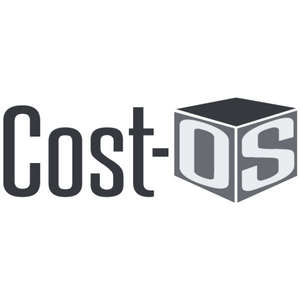The Role of Predictive Analytics in Construction Success

The construction industry has seen significant technological advancements in recent years, especially in data and analytics. Predictive analytics in construction stands out as a game-changer, helping professionals enhance project outcomes by improving planning, reducing risks, optimizing resources, and boosting overall efficiency. By leveraging data analytics tools, construction companies are better equipped to handle the uncertainties of construction projects, resulting in improved project performance and greater success.
Understanding Predictive Analytics in Construction
Predictive analytics refers to using historical and real-time data to forecast future outcomes. In construction, it utilizes large amounts of project data collected over time to make informed decisions about cost estimation, scheduling, resource allocation, and potential risks. By using the power of machine learning and artificial intelligence, construction companies can analyze patterns and trends that were previously difficult to interpret manually. These tools help improve the decision-making processes, allowing professionals to mitigate potential obstacles and capitalize on opportunities.
Using predictive analytics in construction can significantly improve project management by allowing stakeholders to anticipate challenges and streamline processes before problems arise. This helps identify budget overruns, delays, and safety concerns, giving teams time to mitigate these risks proactively.
Enhancing Planning and Forecasting
Accurate planning is the foundation of any successful construction project. With predictive analytics tools, preconstruction project teams can more accurately forecast costs, timelines, and the necessary resources. Cost estimation software like DESTINI Estimator allows teams to generate more accurate cost predictions based on past projects and market conditions. This software enables the creation of detailed and realistic budgets, reducing the likelihood of unexpected financial overruns and ensuring that the project stays within scope.
Predictive analytics can also provide insights into scheduling and resource management. By analyzing historical and real-time data, teams can optimize labor, equipment, and materials resources. For example, when teams can predict labor shortages, construction managers can adjust staffing levels before a project is delayed, maintaining momentum and minimizing downtime.
Mitigating Risks
Risk management is essential in any construction project. Predictive analytics help identify potential risks early on, allowing for the implementation of mitigation strategies before issues escalate. By analyzing project data from previous projects, professionals can pinpoint common risk factors such as weather disruptions, labor strikes, or supply chain interruptions. This data allows teams to create contingency plans and respond swiftly to unforeseen challenges.
For instance, predictive analytics can forecast how likely certain events are to occur based on past performance, project scope, and location-specific factors. This predictive capability allows construction teams to assess and manage risks more effectively, ensuring the project remains on track when facing challenges. Predictive analytics enhances the probability of successful project outcomes by reducing the impact of risks.
Studies show that predictive analytics can significantly improve risk management in construction. For example, research published in Automation in Construction (open in new window) shows how predictive analytics can help identify and mitigate potential risks early in the process. By analyzing historical data and real-time project parameters, teams can forecast supply chain disruptions, labor shortages, and equipment failures, allowing for proactive risk management strategies that keep projects on track.
Optimizing Resources and Improving Efficiency
Efficient resource allocation is another area where predictive analytics plays an important role. By understanding the demands of each phase of a construction project, teams can optimize the use of materials, equipment, and labor, ensuring that the right resources are available when needed. This lowers waste and costs and leads to improved construction management practices.
For example, with data-driven insights, construction companies can predict when certain materials will be required, avoiding over-purchasing or running out of stock. Additionally, predictive analytics can help optimize construction schedules to ensure workers are assigned tasks according to their skillsets and availability. This will reduce idle time and improve productivity.
The benefits of predictive analytics extend beyond just cost and time savings. By using analytics in construction, teams can also improve safety. For instance, when teams analyze historical incident data, they can identify potential safety hazards and implement preventative measures. This proactive approach enhances workplace safety, which is essential for project success and the well-being of workers.
Improving Project Performance with Real-Time Data
A key advantage of predictive analytics is its ability to provide real-time insights into project performance. Construction managers can monitor progress as it happens and adjust as needed to keep things on track. Real-time data allows managers to identify deviations from the project plan, such as delays or budget overruns, enabling quick corrective actions.
For example, project data from sensors on construction sites or connected devices can be fed into analytics systems to track equipment usage, worker productivity, and material consumption. This real-time monitoring ensures that any issues are caught early and that necessary changes can be made immediately, improving project outcomes.
Predictive analytics can improve early-stage cost estimation by using historical data and machine learning to generate more accurate forecasts. This can reduce the risk of budget overruns and streamline the project planning process. Construction companies using predictive models for cost forecasting experience fewer financial surprises and greater project stability.
Driving Business Growth and Success
Predictive analytics improves project management and contributes to driving business growth. With more accurate estimates, fewer delays, and optimized resources, companies can take on more projects and complete them on time and within budget. This increases the company's reputation and opens new business opportunities.
In other words, companies that embrace predictive analytics are better positioned to stay competitive in an ever-evolving industry. By leveraging technology, they can offer more accurate bids, deliver better results for clients, and continuously refine their processes, which are key factors in long-term success within the construction industry.
Technology Leads the Way in Construction
The role of predictive analytics in construction is clear. By improving planning, reducing risks, optimizing resources, and enhancing efficiency, predictive analytics have become a vital tool for ensuring project success. Tools like DESTINI Estimator have revolutionized cost estimation and project management, empowering teams to make data-driven decisions that lead to better project outcomes.
Cam Delahoussaye, a chief estimator at Eleven Western Builders, says, “Having integrated DESTINI Estimator into our preconstruction operations over the past year, I have witnessed firsthand its transformative power. The software enhances estimating accuracy and standardizes processes, driving value for our team. The data-driven approach empowers us to make informed decisions, bolstered by excellent customer support.”
As the industry continues to evolve, companies seeking to stay ahead in an increasingly competitive market will need to use these tools.

-1.png?width=112&height=112&name=image%20(4)-1.png)
















